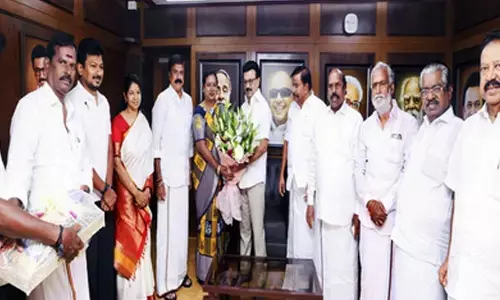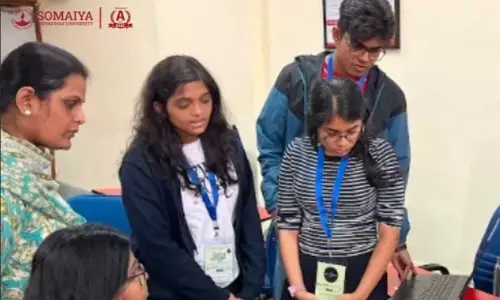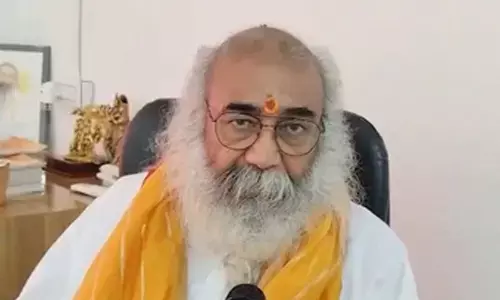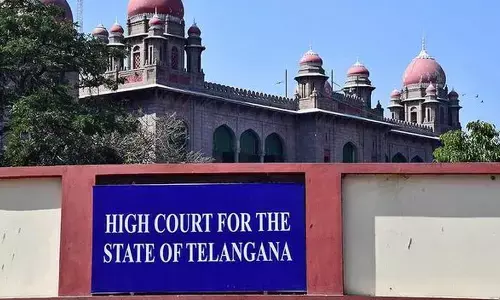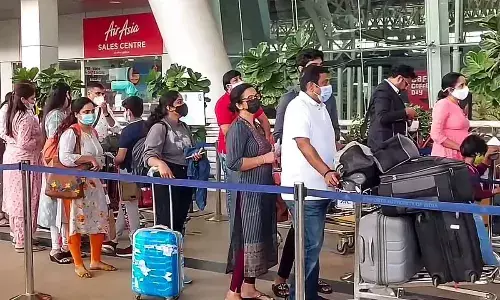What kind of dog

Journalism is expected to perform the watchdog function. But, we find corporate media acting like the lap dogs of big capital. Speaking at the launch event of his book, “Gas Wars:
When the book, ‘Gas Wars: Crony Capitalism and the Ambanis’ was launched, the subjects of the book, Reliance Industries Ltd, served legal notices to authors, reviewer, distributors and even those who forwarded email invites for launch. What is it in the book that has touched the raw nerve…
Journalism is expected to perform the watchdog function. But, we find corporate media acting like the lap dogs of big capital. Speaking at the launch event of his book, “Gas Wars: Crony Capitalism and the Ambanis”, Paranjoy Guha Thakurta closed the session by asking the journalist fraternity, what kind of dog they wish to be. The event organised at Lamakaan in Hyderabad was presided over by Kingshuk Nag, Resident Editor of Times of India, Hyderabad, and senior journalist P Sainath was the discussant who put the book in perspective.

The book, written by Paranjoy GuhaThakurta with Subir Ghosh, and Jyotirmoy Chaudhuri, was released on 15 April 2014 in Delhi. A curtain raiser review appeared on moneylife.com written by Sucheta Dalal on 14 April, 2014, with a teaser title “Ambani Ki Dukaan?”
It did not take long for the subjects of the book, Reliance Industries Ltd,to serve legal notices against the authors, the reviewer, the distributors of the book and even the individuals who forwarded email invites to the book launch function! But for the fact that the book is self-published, it would have met its shredder first before reaching any readers.
What is it in the book that has touched the raw nerve of such a super corporation that straddles the Indian economy and politics with ease?
Paranjoy Guha Thakurtha and his co-authors have piled up such meticulous research from extensive access to authentic documents and personal interviews to cover all angles of the story, including the RIL perspective, that the narrative is hard to dispute. As Thakurta pointed out during the launch interaction, while the company served a legal notice, it is yet to point out a single factual error.
Through a skilful construction of the jigsaw of information, the book narrates the manner in which India’s natural resources have been systematically handed over to private players to reap unprecedented gains at the cost of the exchequer. Irrespective of the government in power, the politicians, the bureaucrats and the corporations together have facilitated a systematic undermining of public interest. Much of what the authors cite in evidence comes from the public fight for control of petroleum resources in the country by the Ambani brothers and the damning Comptroller and Auditor General (CAG) report.
The book narrates a complex, technical story. But it is engagingly written to make the information accessible to the ordinary reader. There are entertaining encounters, descriptions and sketches of personalities that keep the narrative interesting.
The appendices section of the book is of great help in understanding the book. It gives six articles written by Thakurta on oil and natural gas industry over the years, that helps jog our memory about the role of politicians and bureaucrats at various stages in smoothening the path for corporate takeover of the industry. Extracts from the CAG report are appended to back up the citations in the book. The section also reproduces the complete speech delivered by Mani Shankar Aiyer, the former petroleum minister, excerpts from the report of the Standing Committee on Finance, Fifteenth LokSabha, statements issued by Reliance, FIR lodged by the Delhi government, and a comprehensive chronology that traces the issue from 1998 onwards.
There are three reasons why such a book is valuable. Firstly, it is mapping the manner in which governance in a democratic polity can be systematically hijacked by vested interests, with all the so-called checks and balances very much in place. As citizens we are beginning to understand these processes only because of some committed journalists like Thakurta who have been covering these issues over the last several decades.
Secondly, as a journalism teacher one felt that it is an incredibly good illustration of how complex issues can be probed, kinds of documentation to build the case, who to meet, and finally how to narrate the story in an accessible style.
Thirdly, in the days of pulping “unwanted” books and street censorship, it is some sort of a guerrilla tactic to self-publish and to distribute the book through a network that does not depend on the scarce courage of conventional publishing establishment.
As Sainath put it, these are times when spaces for debating important public issues are shrinking. The author has been publicising the book through social media and simple low cost launch events in different cities.
Amazon is already listing “Gas Wars” as the number one best seller in the business ethics category!
“Gas Wars” is the kind of book that every investigative journalist dreams of writing. Many have no platform to do so. The way the book has been published and is being distributed, keeps the integrity of its information intact and free of the pressures of publishing houses. Thakurta shows a possible avenue for the investigative tribe to survive and do their much-needed work.
This book is for all those who are interested in public affairs, governance, and more importantly for all the journalism schools, where the new generation of media persons are nurtured, to make students understand what journalism in public interest is all about.


